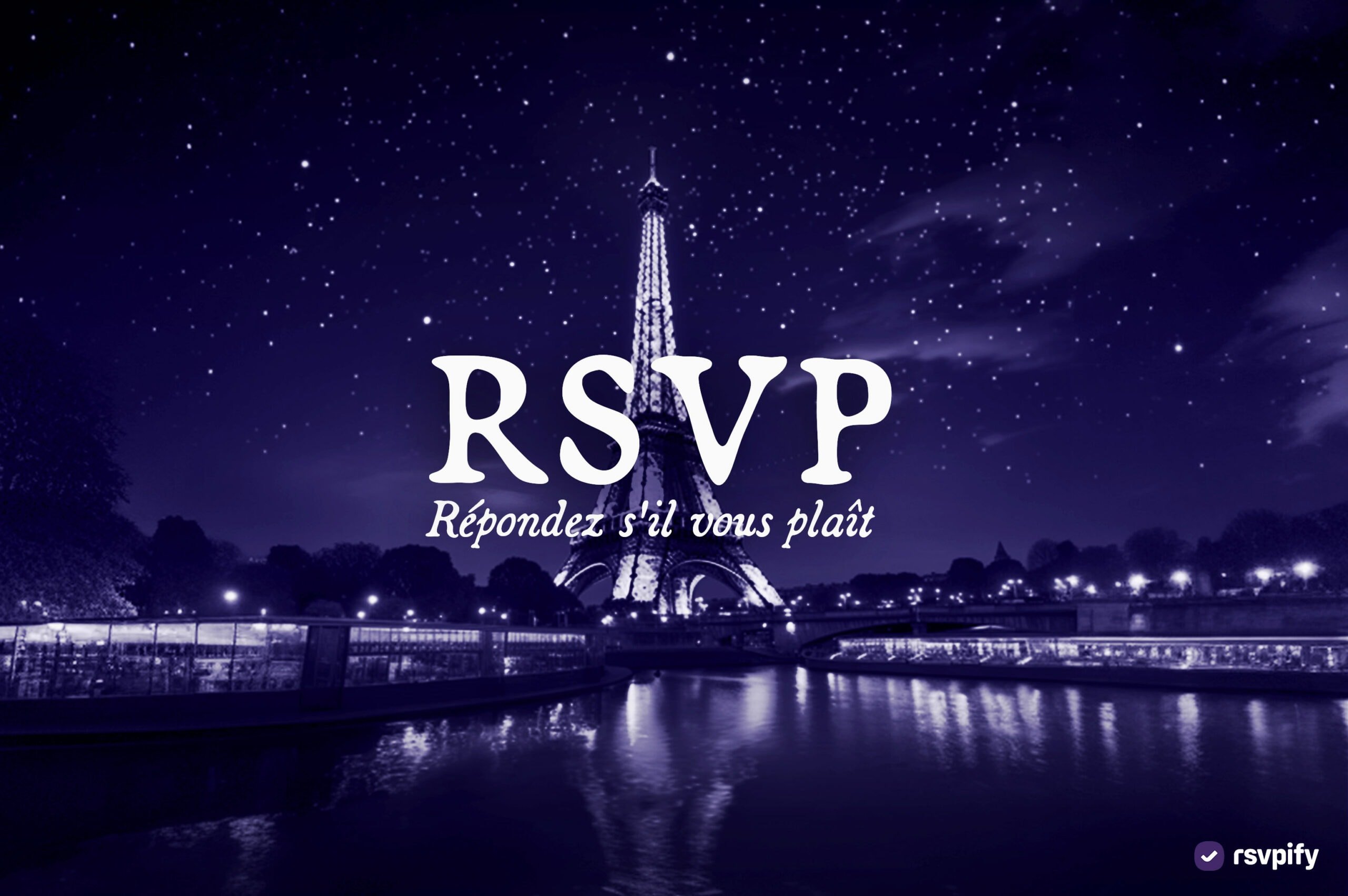
In the world of social events, invitations are the gateways to delightful experiences and unforgettable memories. Like everything else associated with events and event planning, certain phrases and wordings have become traditions just like the white wedding dress, the tuxedo at formal events, the cocktail hour, and more. Chief among these is the term RSVP, which you would recognize from most any invitation you’ve ever sent or received. But what does RSVP mean?
This small acronym, derived from the French phrase “Répondez s’il vous plaît,” has become a global standard for indicating the need for a reply. However, the evolution of RSVP from the original French to a standard element of the modern online invitation is more complex than you’d think! Let’s take a look at how RSVP has become a mainstay of any modern event over the years.
The story of the RSVP phrase begins in the cultural landscape of 18th-century France. During this period, French nobility hosted extravagant social gatherings known as salons. These salons were elegant and sophisticated affairs, and a place beyond simple social gatherings, where politics, business, and even international affairs were often involved and sometimes decided.
Needless to say, because of the importance of salons to French society, knowing who was coming (and which of their friends or enemies might also be there) was important to the salon host. To ensure that the host could plan accordingly and make proper arrangements, the phrase “Répondez s’il vous plaît” (literally meaning “Respond if you please”) was included on the invitations, emphasizing the importance of an RSVP.
From these early beginnings, the RSVP term than made its transition into English-speaking countries in the 19th century. As continental European customs and traditions often influenced the upper echelons of society, English elites began incorporating the practice of requesting responses to their invitations. The term “RSVP” was adopted directly from the French language, maintaining its original meaning and elegance.
As the 20th century unfolded, the middle classes gained social mobility, and formal events became more accessible to a broader range of individuals. Through periods like the Roaring Twenties and through the global tumult of World War 2, social traditions began to spread across borders more quickly than ever before.
Along with this shift came the spread of the RSVP convention beyond the exclusive circles of the elite. The term RSVP became synonymous with a polite request for a response, regardless of social standing or event type. Now, even ordinary couples planning their weddings or dinner parties would use the term as part of the invitation process, and thus the term went from high-society tradition to event planning norm in just a few short decades.
The advent of technology and modern communication tools has transformed the way we interact and respond to invitations. In earlier times, RSVPs were typically sent via mail, often with pre-stamped reply cards included within event invitations. However, with the rise of telephones, email, and online event management platforms, the process of replying to invitations became more convenient and efficient. Despite these changes, the timeless tradition of RSVP remains an essential aspect of event planning and social decorum. No matter how you receive your request to RSVP today, the process and function of the term remains the same as it did two centuries ago – let your guest know you are coming as soon as possible!

© 2025 RSVPify Inc. All rights reserved.